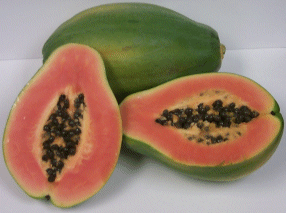The Brazil nut (Bertholletia excelsa) is a South American tree in the family Lecythidaceae, and also the name of the tree’s commercially harvested edible seed.
The Brazil nut family is in the order Ericales, as are other well known plants such as: blueberries, cranberries, sapote, gutta-percha, tea, kiwi fruit, phlox, and persimmons.
The Brazil nut tree is the only species in the monotypic type genus Bertholletia. It is native to the Guianas, Venezuela,Brazil, eastern Colombia, eastern Peru and eastern Bolivia. It occurs as scattered trees in large forests on the banks of theAmazon, Rio Negro, Tapajós, and the Orinoco. The genus is named after the French chemist Claude Louis Berthollet.
The Brazil nut is a large tree, reaching 30–45 metres (100–150 ft) tall and 1–2 metres (3–6.5 ft) trunk diameter, among the largest of trees in the Amazon Rainforests. It may live for 500 years or more, and according to some authorities often reaches an age of 1,000 years. The stem is straight and commonly unbranched for well over half the tree’s height, with a large emergent crown of long branches above the surrounding canopy of other trees. The bark is grayish and smooth. The leaves are dry-season deciduous, alternate, simple, entire or crenate, oblong, 20–35 centimetre long and 10–15 centimetres broad. The flowers are small, greenish-white, in panicles 5–10 centimetres long; each flower has a two-parted, deciduouscalyx, six unequal cream-colored petals, and numerous stamensunited into a broad, hood-shaped mass.
Health Benefits of Brazil Nut
- Brazil nuts contain many helpful nutrients including protein, fiber, selenium, magnesium, phosphorous, vitamin E and thiamine. The Brazil nut contains about 14% protein, 11% carbohydrates, and 67% fat.
- Brazil nuts have “complete” protein which means that the Brazil nut has all of the necessary amino acids to help foster optimal growth in humans. Organic Brazil nuts can be a good source of protein for people who are vegetarians.
- Selenium, found in brazil nuts, is a powerful antioxidant linked to lower rates of cancer and heart disease and also helps boost the immune system along with possibly discouraging the aging process.
- Magnesium, also found in brazil nuts, aids the release of energy from foods to assist nerve and muscle function and keep bones healthy. Zinc helps strengthen the immunes system as well and Vitamin E can help prevent heart disease.

